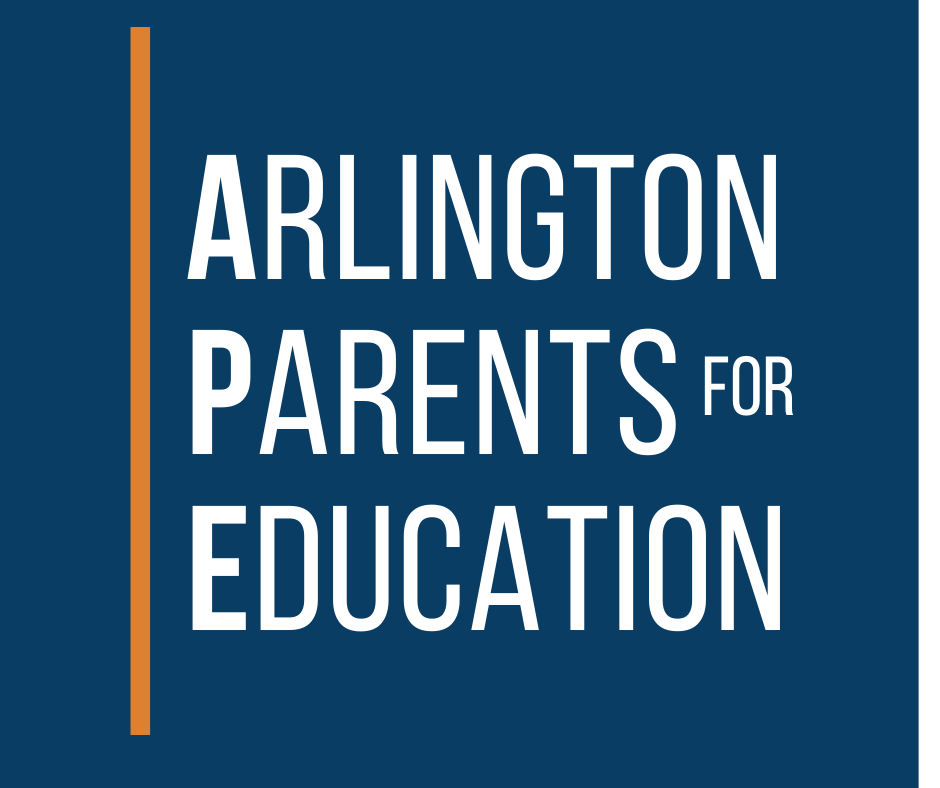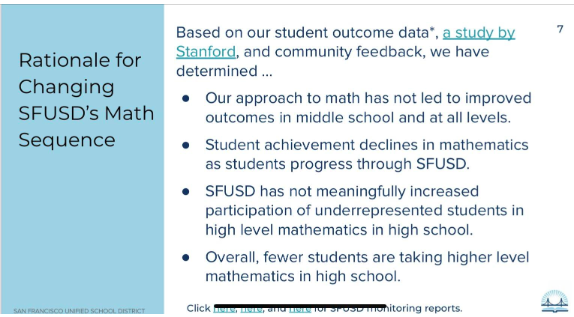APS' Intensified Classes vs. Virginia’s Math Pathways Initiative & San Francisco’s ‘Algebra For None’
On March 5th, 84% of San Francisco voters supported a referendum for San Francisco Unified School District (SFUSD) to bring back Algebra for 8th graders. It was a stunning rebuke of the school district’s failed experiment, and showed the universal unpopularity of policies to restrict children from taking accelerated and advanced math courses.
The Backstory: As we previously covered, SFUSD revised its math program in 2014 based on the ideas of Stanford Education Professor Jo Boaler, requiring math classes that were heterogeneous in skill level and restricting Algebra until 9th grade. By 2018, Boaler and SFUSD were claiming success based upon the district’s preliminary data.
However, a parent group found that SFUSD and Boaler were significantly misrepresenting the preliminary data. Furthermore, a flood of middle class and well-off families pursued workarounds, creating opportunity gaps between kids from these backgrounds and those with less advantage. As a result, the City of San Francisco (not SFUSD) began funding workarounds for the less advantaged kids. Meanwhile, SFUSD’s math head used the tired trope that those who opposed the inequity of such policy were only affluent parents fighting for their own children to get ahead.
In March 2023, a study by professors from Stanford University confirmed that SFUSD’s preliminary data had been misrepresented. Fortunately, SFUSD has seen the light and is now on track to bring back Algebra for 8th graders, confirming to its Board in January 2024 the following about the results of its failed experiment:
Why It Matters: The VDOE’s Virginia Math Pathways Initiative (VMPI) in 2021 proposed a program for Virginia math state-wide, just like SFUSD’s failed experiment. Among other things, VMPI condensed Pre-Algebra and put select portions of Algebra, Geometry and Algebra II into a Grade 8-10 “Essential Concepts Course,” thereby delaying Pre-Algebra until 8th grade. Like SFUSD (and even citing Boaler), classes would be heterogeneous in ability level (i.e., no intensified versions) and VMPI would “drastically [reduce] the need for” or “eliminate” acceleration.
VMPI primarily cited the following for this proposition, both of which principally used SFUSD’s misrepresented data as empirical evidence:
The Catalyzing Change book series of the National Council of Teachers of Mathematics (NCTM); and
The detracking statement issued by National Council of Supervisors of Mathematics (NCSM).
After immediate blowback from the public, the VDOE quickly "clarified" that school districts would still be able to offer acceleration and intensified classes (such clarification did not include when those options should occur). Based on several factors, including evidence that certain Democratic voters switched to Glenn Youngkin to oppose VMPI (a prelude to the crushing referendum vote in San Francisco), Youngkin killed the VMPI upon taking office.
To this day, neither NCSM nor NCTM has issued a correction about SFUSD’s data. Moreover, NCTM still offers a professional development webinar about SFUSD as a Catalyzing Change “success story” (from December 2022, long after publicity about SFUSD’s data problems). At its 2023 convention (which various APS staff attended), NCTM’s keynote speech referred to non-heterogeneous ability grouping as “dehumanizing” and supporting “academic and social apartheid” despite strong evidence that ability grouping helps all students.
Boaler subsequently faced widespread public scrutiny for its use of countless false and misleading citations in the 2023 California Math Framework (detailed in a critical article and interview in the Chronicle of Higher Education). She refuses to answer questions as to whether she similarly misrepresented SFUSD’s data.
Our Take: Famous Virginia education scholar E.D. Hirsch (APS uses his foundation’s English Language Arts curriculum) theorized that, if public schools do not teach certain facts (e.g., accelerated and advanced math opportunities), children with means will continue to learn such information through private schools, tutors and/or their parents, which will only serve to widen equity gaps. SFUSD provided a real-life example of this phenomenon.
The general public clearly understands this reality, as demonstrated by the reaction to VMPI and in the San Francisco referendum vote. But some in the education world are still in denial (e.g., NCSM, NCTM, Virginia Council for Math Supervision).
As we previously covered, APS’ rollout of Intensified Middle School classes has been an equity success, with the enrollments by race generally mirroring the overall racial distribution of APS and strong uptake from the student body (37% - 48% of eligible students per intensified class). Contrary to SFUSD, Dr. Durán, APS staff and the School Board are showing how equity is actually furthered – by providing academic opportunities for all, not by removing them.

